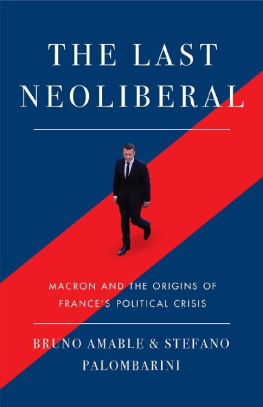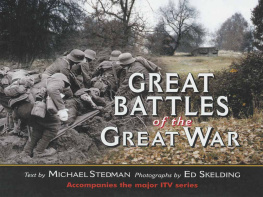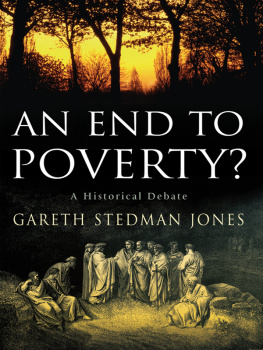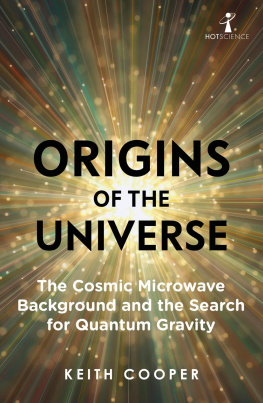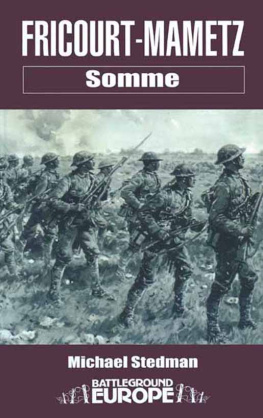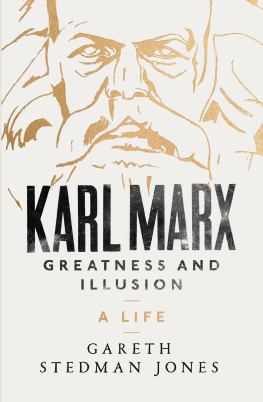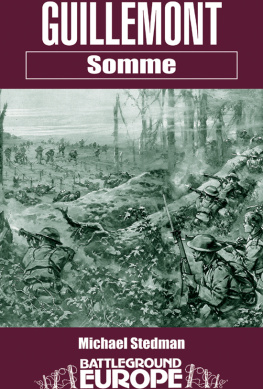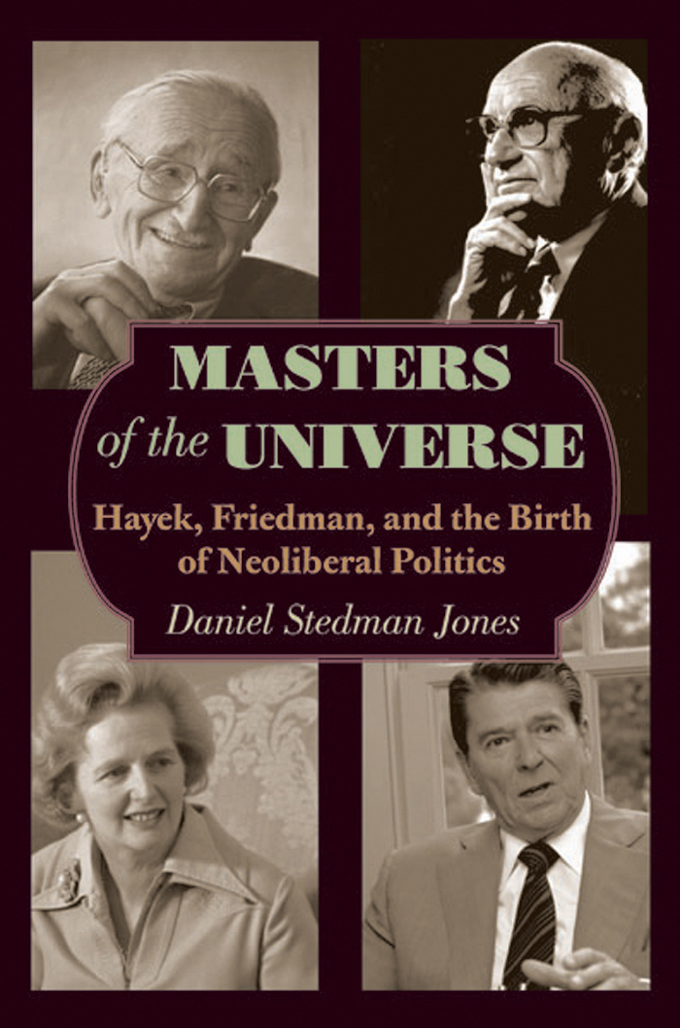Masters of the Universe

Masters of the Universe

HAYEK, FRIEDMAN, AND THE BIRTH OF NEOLIBERAL POLITICS
Daniel Stedman Jones

Copyright 2012 by Daniel Stedman Jones
Published by Princeton University Press, 41 William Street,
Princeton, New Jersey 08540
In the United Kingdom: Princeton University Press, 6 Oxford Street,
Woodstock, Oxfordshire OX20 1TW
Requests for permission to reproduce material from this work should be sent to
Permissions, Princeton University Press
press.princeton.edu
All Rights Reserved
ISBN 978-0-691-15157-1
L IBRARY OF C ONGRESS C ATALOGING-IN -P UBLICATION D ATA
Jones, Daniel Stedman.
Masters of the universe : Hayek, Friedman, and the birth of neoliberal politics / Daniel
Stedman Jones.
p. cm.
Includes bibliographical references and index.
ISBN 978-0-691-15157-1 (hbk. : alk. paper)
1. NeoliberalismHistory. 2. Economic policy. 3. EconomicsPolitical aspects. I. Title.
HB95.J66 2012
320.51dc23 2012002523
British Library Cataloging-in-Publication Data is available
This book has been composed in Arno Pro
Printed on acid-free papers.
Printed in the United States of America
1 3 5 7 9 10 8 6 4 2
To my parents,
Sally Alexander and Gareth Stedman Jones
Contents

Acknowledgments

This project germinated over the many years I spent at Oxford University and working in public policy at the London-based think tank, Demos. There are always more people to thank than can fit into a space such as this, but clearly, some people deserve special mention. I had always wanted to conduct a study of transatlantic policy and thought of starting a project on U.S.-UK policy transfer with my great friend and colleague at Demos, Rachel Jupp. The chance to pursue the idea did not come until I returned to graduate study, initially to complete my masters degree in political theory and American politics in the Political Science Department at the University of Pennsylvania.
The opportunity really opened up when I began to work with Professor Michael Katz in the History Department at Penn. I owe my greatest thanks to Michael, who encouraged me to switch departments from Political Science and inspired me to stay for the doctoral program in history. His quiet authority and demanding inquisitiveness were the most important spurs to my graduate education in general and this book in particular. I must also thank the other members of my committee, Professor Warren Breckman and Professor Thomas Sugrue, both of whom provided invaluable comments, help, and encouragement throughout the years I spent on the book. Conversations with both of them (and with Michael) kept me focused and allowed the project to develop manageably. I should also thank my two closest friends and colleagues at Penn, Daniel Amsterdam and Tim Weaver. We kept each other sane amid the inevitable highs and lows of graduate work. I would also like to reserve a special thanks for Professor Peter Hennessy at Queen Mary College, London, who very kindly advised me on the British research for this book. Without his help, the project would have been more limited in intellectual scope and imagination. I am also very grateful to Professor Daniel Rodgers of Princeton University, whose book, Atlantic Crossings, was one of the major beacons behind this project and who acted as a tough but fair examiner for my PhD. Finally, Chris Alsopp and Robert Skidelsky gave generously of their time to read drafts of the chapters on economic policy. Responsibility for the overall approach and any remaining errors in the text, however, is solely my own.
I thank all of the interviewees who generously gave their time and helped bring this project to life through their insights and remembrances: Anneliese Anderson, Martin Anderson, John Blundell, Eamonn and Stuart Butler, Leon Brittan, Jim Boughton, Ed Crane, Andrew Duguid, Ed Feulner, John Hoskyns, Michael Howard, Geoffrey Howe, Douglas Hurd, Peter Jay, William Keegan, Norman Lamont, Tim Lankester, Nigel Lawson, Madsen Pirie, John Redwood, George Shultz, and Robert Skidelsky. I also thank the archivists at the Ronald Reagan Presidential Library, the Hoover Institution at Stanford University, the Conservative Party Archive in the Bodleian Library, and the Thatcher Archive at Churchill College, Cambridge, who were efficient and helpful whenever I needed attention. In particular, Diane Barrie and Andrew Riley were unfailingly patient and provided essential assistance and advice. Professor Mary Chamberlain kindly lent me the recording equipment I used to conduct my interviews for the project.
I want to thank my editors at Princeton University Press, Ian Malcolm and Al Bertrand, without whom the book might never have seen the light of day. I am also grateful to all the staff at the press, especially Hannah Paul and Debbie Tegarden, for making the books publication a smooth and thoughtful process.
Many friends and family members provided encouragement and a temporary home during the course of my research in London, Oxford, Cambridge, Philadelphia, California, Washington, D.C., and New York, among them Christopher Glass, Adam Solow, Laura Scarano, Jenny Suen, Alexis Sampietro, Larissa and Conrad Persons, Jake Stevens, Clara Heyworth, Tanya Naps, Verity, Elizabeth, and Mark Allen, Cate and Mike Styer, and William Poole. My family, Abigail, Nigel, Miri, Joseph, Molly, and Talia, gave unstintingly the love and support that make me happy and capable. Beatrice Riley helped me in more ways than I can say while I revised and finished the manuscript. Finally, I thank my parents, Sally Alexander and Gareth Stedman Jones, to whom this book is dedicated.
D ANIEL S TEDMAN J ONES
March 2011
Timeline
Decade | United States | Britain |
1900s | 19001930
High tide of American Progressivism
|
190614
New Liberal government of Herbert
Henry Asquith enacts welfare reforms
|
1910s |
191718
United States joins the war
| 191418
World War I
|
1920s | 1929
Wall Street crash | 1926
The General Strike |
1930s | 1932
FDR elected and New Deal begins
19331945
Democrat Roosevelt administration |
September 1939
Outbreak of World War II
|
1940s | April 1945
FDR dies, replaced by Harry Truman
194553
Democratic Truman administration
1945
World War II ends
| May 1945
Clement Attlee prime minister
194551
Labour government
1948
National Health Service founded by Nye Bevan |



